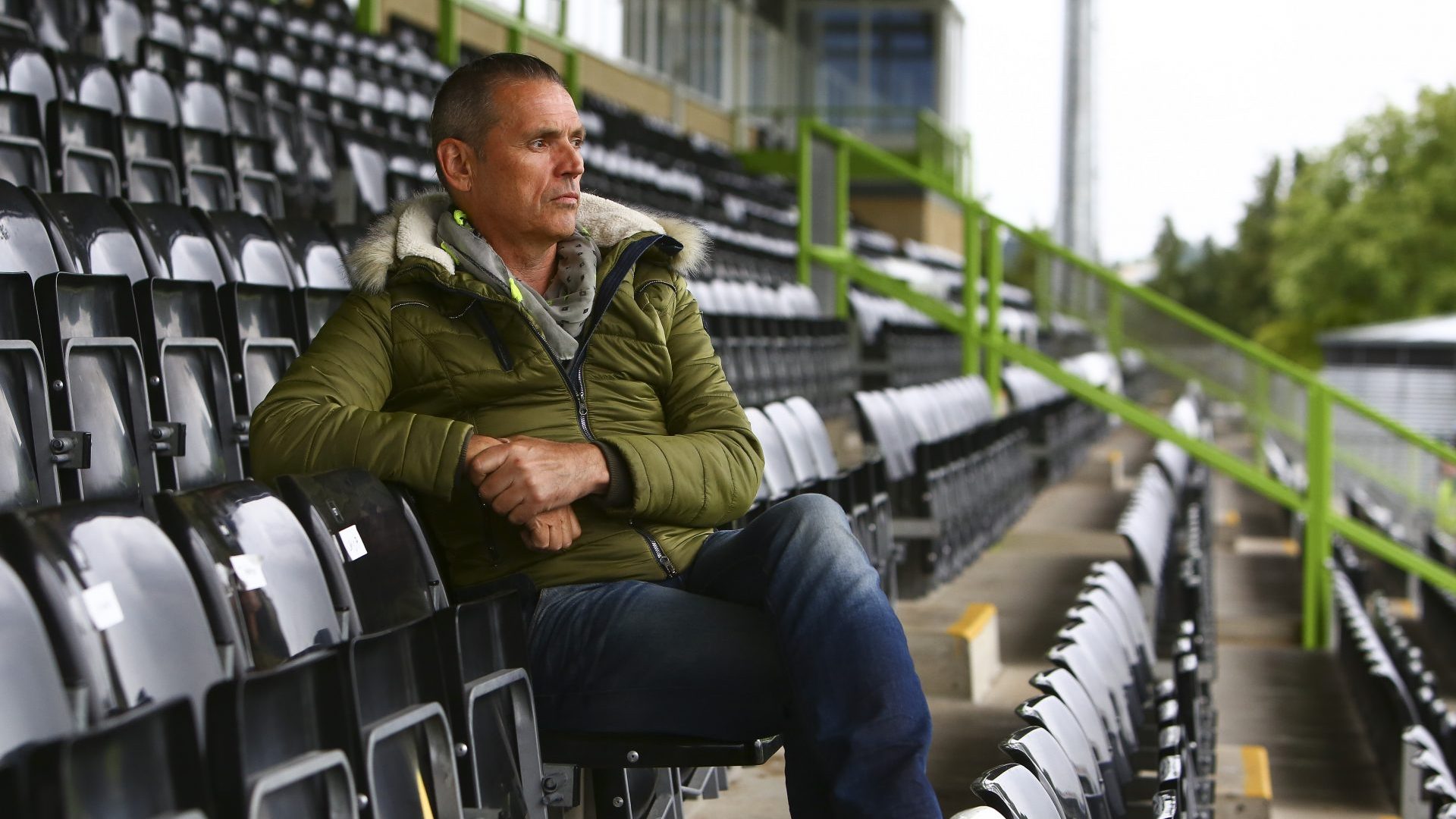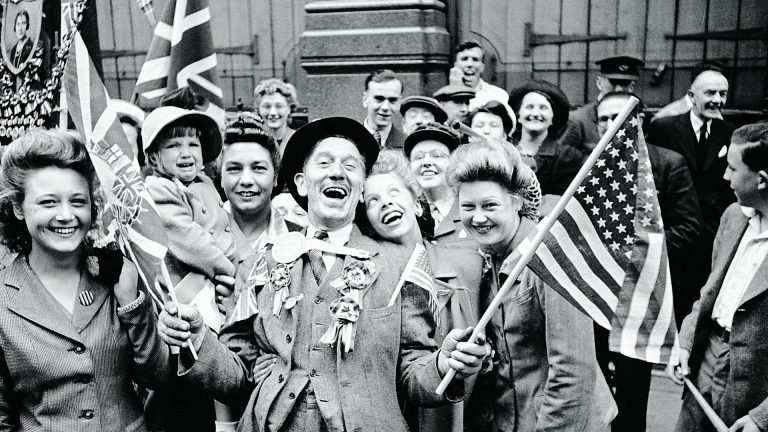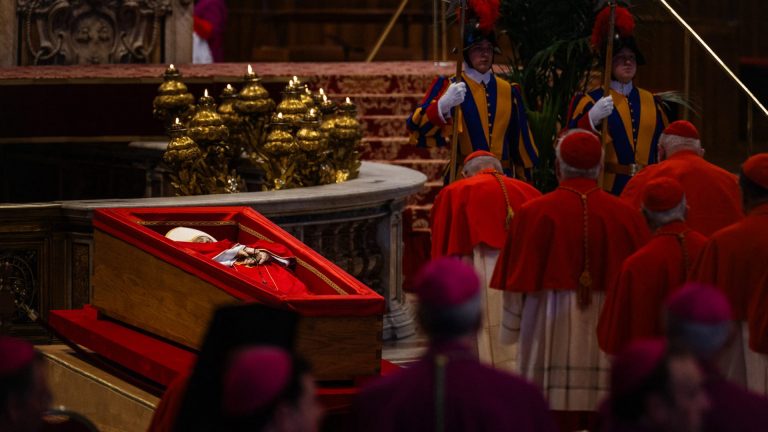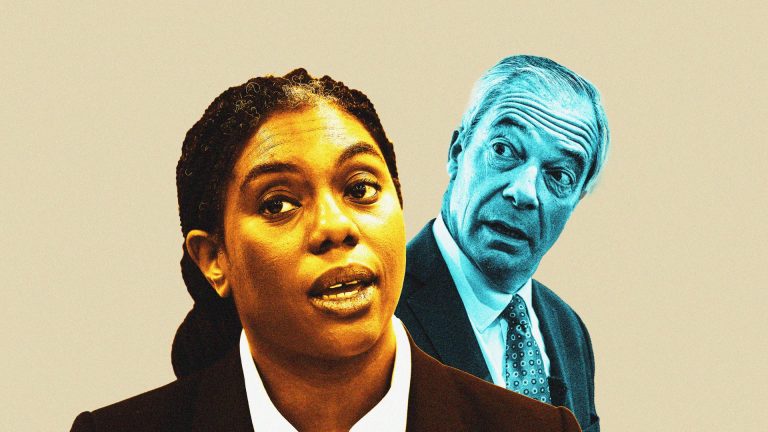Some public figures have a particular description that seems to appear in almost every article about them. Dale Vince, the new-age traveller turned founder of green energy firm Ecotricity, is inevitably dubbed a “colourful entrepreneur”.
The 60-year-old left school at 15 and first entered the sector by building a wind turbine to power the old ambulance he once called home. Now worth an estimated £100m and living in a Georgian hill fort overlooking the Cotswolds market town of Stroud, he doubles up as chairman of Forest Green Rovers, the world’s first vegan football club on the cusp of promotion to England’s third tier.
And on April 1 this year, in what some people locally initially took to be an April Fool, he had an announcement to make: he was selling Ecotricity – a move likely to net him hundreds of millions of pounds – and entering the world of politics. Just not, immediately, how.
“The logic of the process goes like this: we’ve got everything we need to fight the climate crisis,” he tells me down the line from Gloucestershire.
“I mean, we know that it’s real, the scientific consensus is clear, we know what we need to do, we have the technology and renewable energy, we can electrify transport, change our diet, all that stuff – it’s more economic than not to do it, and we’ve got the public with us. But the thing we’re missing are politicians that truly get it and the policies that can get us there fast enough. For me, it’s the missing piece of the jigsaw now.
“When I started 25 years ago you couldn’t even buy green electricity in the world. Today it’s everywhere and the technology’s matured, it’s become the cheapest form of energy that we can make. It’s like an evolution of the situation, really. The last frontier to solve this problem, I think, is politics, which is where the power lies.”
Boris Johnson’s government, he says, while keen to parade its green credentials, is in thrall to often climate-sceptic backbenchers who are behind the curve of public opinion on the crisis.
“Repeated opinion polls show this,” he says.
“70-80% of the public want to see more action on the climate crisis, support onshore wind, for example, and yet we have a government that wants to open coalmines, drill in the North Sea and continue the ban on onshore wind.” (An Opinium poll earlier this month found 78% of the public was in favour of windfarms being built in the UK.)
He adds: “Our government are, I think, driven by a vocal minority of their own party. What they’re not doing is reflecting what the majority of people in our country want, and what the scientific consensus says we have to do anyway. Even if the public weren’t with us, it’s the job of our politicians to lead us to this place that we need to be, and they’re not doing that.
“Politics in our country isn’t a very honest game. We have politicians that see the need to tick a box, say the right words. Some of them definitely are connected to vested interests in the fossil fuel business, we’ve seen that, it’s quite clear. And some of them are just ideologically opposed to renewable energy and the climate crisis. You know, they still think that it’s not a thing, and it’s not driven by man-made emissions even if it is a thing, and they object to having the freedom to burn fossil fuels taken from them. It’s a crazy situation.”
Vince has a mini-manifesto, were he to find himself handling the climate portfolio tomorrow: first, over a period of five years take £2bn a year from the subsidies currently paid to fossil fuel producers and give it to renewable energy creators so that, in five years, fossil fuel producers would receive nothing. In addition he would immediately end tax breaks to North Sea oil companies, along with those on flying.
“Basically, I would use taxes, subsidies and regulations, the big levers of our economy, to point our behaviour in a different direction – to stop making it cheaper to pollute and actually making it cheaper to not pollute,” he says.
Russia’s invasion of Ukraine, he believes, has concentrated minds on the fact that energy policy doesn’t exist in a silo, as countries across Europe suddenly start to pay attention to who they are reliant on for their needs.
“For me it’s maybe the only good thing to come out of the Ukraine crisis… this hyper-focus on where our energy comes from,” he says.
“Suddenly so many more people are aware that we depend on some dodgy people and dodgy regimes in the world for most of where our energy still comes from, and we’re utterly dependent on the global price for it, which is a real eye-opener for a lot of people because 50% of our gas this winter came from our own North Sea, but we paid the global price for it. We didn’t save a penny because of that.” The UK, he believes, needs to decouple itself from global commodity pricing (“crazy free market dogma”).
Vince, a former benefits claimant, has appointed KPMG to handle the sale of his business, but has a clear idea of who he wishes to sell to: “Somebody with a genuine commitment to green energy, to keeping Ecotricity where it is in Stroud and somebody with deep enough pockets to pick up our development pipeline, which is now two gigawatts big, and get it built”.
And so on to politics. In the past the businessman has donated (not insubstantially) to Labour, the Liberal Democrats and the Greens. He has sympathy for the Greens and has been a vocal admirer of Caroline Lucas, but is realistic enough to know they have no chance of being in government.
So it is Labour he is throwing his political lot in with. He is a member, but has not held any conversations with senior figures in the party about how precisely he makes the move into politics.
“But we’re aware of each other and yeah… I mean it is what it is,” he says enigmatically.
“I don’t quite know how to approach politics. I’ve been putting some thought into it since I made the announcement, I’ve had some conversations with the local party and local politicians and… I don’t know if being an MP is the best route for me, or whether there’s a different way to engage. What I want more than anything else is being able to influence policy, to be able to bring my experience and knowledge of these issues to policy, because I think it’s missing. There’s a disconnect between politicians and actual frontline knowledge of how things work and what’s possible.”
A peerage, possibly?
“Yeah, I guess it could be… from a distance it seems to me the House of Lords doesn’t have a big role to play, but I understand that actually being in the House of Lords is a way to be involved in government without being elected.”
We talk briefly around other, non-energy areas of policy but it’s quickly apparent Vince hasn’t thought as deeply about these (he’s a big fan of the NHS and thinks education is a good thing). On tax, though, he is more animated, firmly advocating a move from greater taxation of earned to unearned wealth. “We tax money made with a pair of hands at a far higher rate than we tax money made with money, with assets, with wealth,” he says. “And I can’t understand that, I think it’s just wrong. It’s prejudiced against poorer people… they don’t have assets, they don’t have wealth making money for them. We shouldn’t have that disparity.” Corporate tax, he argues, is also too low.
Having only spoken to Vince for half an hour, it’s clear he is cut from a very different cloth to most Labour MPs, or MPs more generally. I can’t, for example, imagine him as an MP taking to the airwaves and sticking rigidly to the ‘lines to take’ emailed to him from his party’s press office that morning.
“I think it would depend on the issue, you know?,” he says. “If we were talking about an issue I felt very strongly about, that would be a problem. And, you know, what you’ve just said to me is what a lot of people are saying to me in the last few weeks since the announcement – it won’t suit me, I’ll be frustrated and impatient because in business I can make decisions myself, get things done quickly, in politics it’s very different, got to toe the line, all that kind of stuff.
“So, you know, what you’re saying is probably right. It’s definitely an issue to think about.”
One area where he might rub up immediately with the leadership is a very different attitude to direct action. Vince funded the group Just Stop Oil, who caused Everton’s match against Newcastle last month to be halted after a man ran on to the Goodison Park pitch and strapped himself to the goalpost with a cable tie around his neck. Vince did not know what the group was planning and said at the time: “It is amusing to me that I seem to have my fingerprints on this accidentally.”
Keir Starmer, as a former director of public prosecutions, might think differently, I suggest.
“Yeah, and I think he has spoken publicly about that and called for injunctions and stuff like that, so there’s a good example.”
I ask if Vince can see the argument that such actions (and those of Extinction Rebellion, protesting against a lack of action against the climate crisis by targeting London’s Docklands Light Railway) might be seen as counter-productive in terms of winning public sympathy.
“Oh, of course. And then I see the other argument that says, for example, look at the Suffragettes. Look what the Suffragettes did. I mean, they disrupted. They weren’t universally popular for what they did, were they?”
Vince also caused controversy at his own club’s stadium on Easter Monday, flying the Palestinian flag during Forest Green’s home game against Oldham and taking to social media to say that the “conflict there has all the same ingredients as the one in Ukraine”, a move which proved divisive. Does he think the conflicts are directly analogous?
“I think the things that are getting people exercised about in Ukraine… the destruction of homes and of hospitals, the murder of civilians, the sieges of cities, all of those things – and this is what I’ve said – those ingredients exist in Palestine and they have done for decades,” he says.
“But we turn a relative blind eye to them. We let them happen. Why is that? For me that’s an incredible disconnection, double standard. We’re up in arms, quite literally, about what’s happening in Europe, in the [sic] Ukraine, but we just let what’s happening in Palestine go on. There are so many parallels with what’s happening in the [sic] Ukraine.”
It is, I suggest, an analogy which might have found favour under Labour’s previous leadership but one which, pursued proactively, might cause discomfort under those now at the top.
“I don’t think so,” says Vince. “I think probably what you’re alluding to is what happens when anybody speaks out for the Palestinians, which is they get accused of being antisemitic. And these things are not the same. It’s possible to be against what the Israeli government is doing without being against the Israeli people. And without being against Jews more generally. It’s not antisemitic to say what’s happening in Palestine is wrong. It’s a crime against humanity.”
Despite what has been reported elsewhere, while Ecotricity is for sale, Forest Green Rovers are most definitely not (“People have confused that,” he says).
And at the time of writing, while Forest Green’s promotion to League One is not confirmed, it would take a very odd set of results for the remainder of the season for them not to make it.
“Our aim, and we believe it’s realistic, is to be in the Championship [English football’s second tier],” says Vince. “We set that out about 10 years ago.”
Vince had a plan for his football club’s rise. For his own political career, not so much. It will be fascinating to see how it goes.











